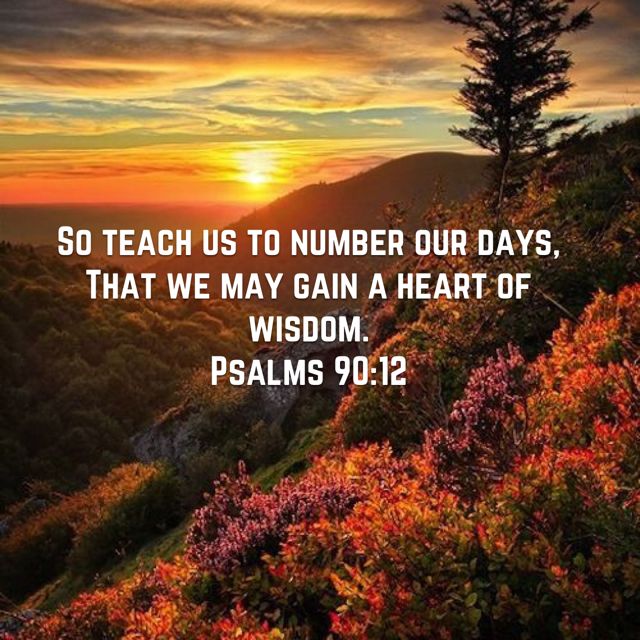As we think about the truth that our time is limited, one of the immediate implications is that our lives and everyone else’s lives are fleeting–James 4:14…What is your life? For you are a mist that appears for a little time and then vanishes. This is why Moses writes in Ps. 90:12 So teach us to number our days that we may get a heart of wisdom. To further grasp the principle being put forth in a passage, it’s often helpful to think about the opposite of the principle being put forth—if we don’t learn to number our days appropriately, we will have a heart of foolishness.
In fact, we are bombarded with truth-defying mantras constantly in our culture—“You deserve some ‘me time’; you need to take a break and live for yourself a little bit; Relax and get away from the pressures of responsibility—you’re earned it.” Even if we don’t adopt those cultural mantras, we can adopt the world’s excuses: “I’m too tired or too busy to pursue God by reading Scripture, praying and gathering with God’s people.” If that is the case, then what practical changes are you making to your schedule to make sure you do not remain in a state of being too tired or too busy for God? It is a high level of presumption to not take control of your time, as far as it depends upon you, and then end up in the same spot every week. Yes, kids get sick, cars break down, our homes need to be maintained, our own bodies show signs of wear and tear, but those are providential occurrences in our lives that take up time. It’s the other chunks of time that we must be wise with so that’s why I would strongly recommend to be too tired and too busy to watch incessant amounts of TV or to endlessly browse social media sites. We will stand before God one day and we will not be able to blame the distractions of the age we live in as the excuse why we did not cultivate a heart of wisdom by numbering our days.
So what must we do to be faithful in this area? We must renew our minds that since our life is a vapor and our days are numbered, what we do with our time is of incredible importance because there isn’t a lot of it. For instance, is there anyone who gets to the end of a week and thinks, “I spent enough time with the Lord, I spent enough time serving others, I spent plenty of time praying about doors of opportunity to share the truth in evangelism and discipleship?” Sadly, isn’t the opposite often the case?—”I squandered time in this area and was selfish here; I wasted a chunk of time watching worthless stuff over there.” The fact is we don’t get time back, so whatever we did up to this point is done and it’s in the books. So let us learn and grow from our mistakes for we need not remain in a guilty state with regards to our usage of God’s gift of time.

